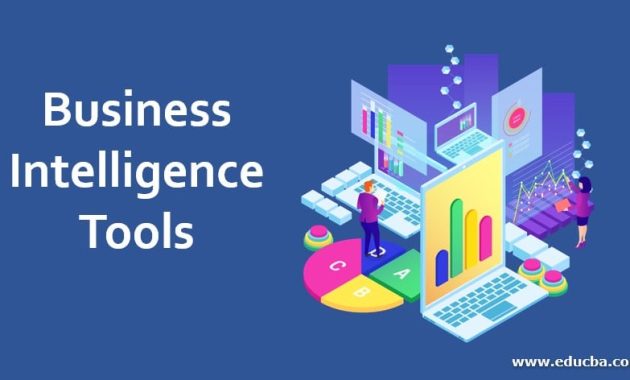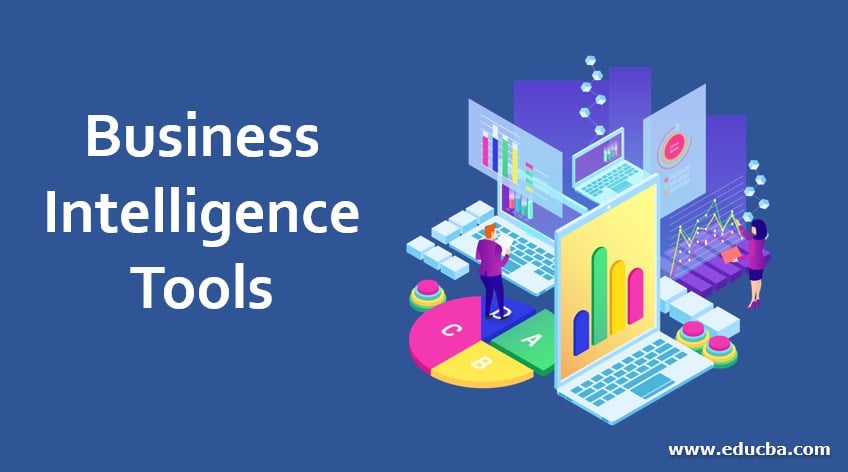
Why 8 Business Intelligence Tools You Need to Know
In the data-driven landscape of modern business, the ability to extract actionable insights from raw information is no longer a luxury; it’s a necessity. This is where Business Intelligence (BI) tools come into play. They empower organizations to analyze vast datasets, identify trends, and make informed decisions. This article delves into eight essential Business Intelligence tools that every organization should consider. These tools can transform how you understand your business and drive strategic initiatives.
Business Intelligence tools are software applications designed to collect, process, analyze, and visualize business data. They provide crucial insights that businesses can use to improve decision-making, optimize operations, and gain a competitive edge. Choosing the right BI tools is crucial for success. Selecting the right Business Intelligence tools can be a game-changer for your organization.
The Core Functions of Business Intelligence Tools
Before diving into specific tools, it’s important to understand the core functions that define a BI solution. These include data collection, data warehousing, data analysis, reporting, and data visualization. Effective BI solutions perform these functions seamlessly, allowing users to focus on extracting valuable insights rather than wrestling with data complexities.
- Data Collection: Gathering data from diverse sources.
- Data Warehousing: Storing data in a centralized repository.
- Data Analysis: Applying analytical techniques to uncover patterns.
- Reporting: Generating reports that summarize findings.
- Data Visualization: Presenting data in easy-to-understand formats.
Tool 1: Tableau
Tableau is a leading data visualization tool renowned for its user-friendly interface and powerful analytical capabilities. Its drag-and-drop functionality makes it easy to create interactive dashboards and reports. Tableau supports a wide range of data sources, making it a versatile choice for businesses of all sizes. The tool’s ability to quickly visualize complex data sets is a significant advantage.
Tool 2: Microsoft Power BI
Microsoft Power BI is another industry leader, offering a comprehensive suite of tools for data analysis and visualization. It integrates seamlessly with other Microsoft products, making it a natural choice for organizations already invested in the Microsoft ecosystem. Power BI provides robust data modeling capabilities and a wide array of visualization options. It is a cost-effective solution for businesses of all sizes.
Tool 3: Qlik Sense
Qlik Sense is known for its associative data modeling engine, which allows users to explore data relationships in a more intuitive way. It offers a user-friendly interface and a wide range of data visualization options. Qlik Sense excels in providing insights that might be missed by other tools. It offers advanced analytics features and a robust platform for data discovery.
Tool 4: Looker (Google Cloud)
Looker, now part of Google Cloud, is a powerful BI tool that focuses on data governance and collaboration. It allows organizations to define a single source of truth for their data, ensuring consistency and accuracy across the board. Looker’s ability to integrate with other Google Cloud services is a significant advantage. It is a great option for organizations that prioritize data governance.
Tool 5: Domo
Domo is a cloud-based BI platform that offers a comprehensive suite of tools for data integration, analysis, and visualization. It is designed to be user-friendly and accessible to a wide range of users, regardless of their technical expertise. Domo’s focus on ease of use makes it a great choice for organizations that want to empower their entire workforce with data insights. This BI tool offers real-time data access and collaboration features.
Tool 6: Sisense
Sisense is a BI platform that focuses on simplifying complex data analysis. It is known for its ability to handle large datasets and provide fast performance. Sisense’s in-memory technology allows for quick data exploration and analysis. It is a good option for businesses that need to analyze large volumes of data.
Tool 7: SAP Analytics Cloud
SAP Analytics Cloud is a cloud-based BI solution that integrates with SAP’s enterprise resource planning (ERP) systems. It offers advanced analytical capabilities, including predictive analytics and planning. SAP Analytics Cloud is a good choice for organizations that use SAP systems. The tool provides a unified platform for analytics and planning.
Tool 8: MicroStrategy
MicroStrategy is a comprehensive BI platform that offers a wide range of features for data analysis, reporting, and data visualization. It is known for its scalability and security features. MicroStrategy is a good choice for large enterprises with complex data needs. The platform supports a wide range of data sources and analytical techniques.
Key Considerations When Choosing a Business Intelligence Tool
Selecting the right Business Intelligence tool involves careful consideration of several factors. These include your organization’s specific needs, the complexity of your data, your budget, and the technical skills of your team. Consider the following when making your decision.
- Data Sources: Does the tool support the data sources you use?
- Scalability: Can the tool handle your current and future data volumes?
- User-Friendliness: Is the tool easy for your team to learn and use?
- Features: Does the tool offer the features you need?
- Cost: Is the tool affordable for your organization?
The Future of Business Intelligence
The field of Business Intelligence is constantly evolving, with new technologies and trends emerging regularly. Artificial intelligence (AI) and machine learning (ML) are playing an increasingly important role in BI, automating tasks and providing more advanced insights. The future of BI is about empowering users with the tools they need to make data-driven decisions. The future will bring greater automation and more sophisticated analytics capabilities.
Conclusion: Selecting the Right Business Intelligence Tools
Choosing the right Business Intelligence tools is crucial for any organization that wants to thrive in today’s data-driven world. The eight tools discussed in this article represent some of the best options available. By carefully evaluating your needs and considering the factors outlined above, you can select the BI tools that will empower your organization to make smarter decisions and achieve its strategic goals. Investing in the right BI tools is an investment in your future. [See also: Related Article Titles]

